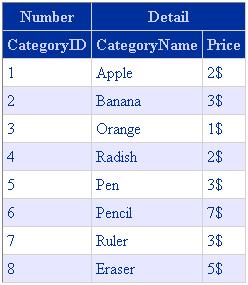C#中ref与out的使用
—— 以下信息均来自网上,后边会稍加自己的总结 ——
c#的类型分为两种:值类型和引用类型:
值类型: 简单类型(包括int, long, double等)和结构(structs)都是值类型
引用类型:除了值类型以外的都是引用类型。
- REF
ref 关键字使参数按引用传递。其效果是,当控制权传递回调用方法时,在方法中对参数的任何更改都将反映在该变量中。若要使用 ref 参数,则方法定义和调用方法都必须显式使用 ref 关键字。例如:
1 class RefExample
2 {
3 static void Method(ref int i)
4 {
5 i = 44;
6 }
7 static void Main()
8 {
9 int val = 0;
10 Method(ref val);
11 // val is now 44
12 }
13 }
2 {
3 static void Method(ref int i)
4 {
5 i = 44;
6 }
7 static void Main()
8 {
9 int val = 0;
10 Method(ref val);
11 // val is now 44
12 }
13 }
传递到 ref 参数的参数必须最先初始化。这与 out 不同,后者的参数在传递之前不需要显式初始化。有关更多信息,请参见 out。
尽管 ref 和 out 在运行时的处理方式不同,但在编译时的处理方式相同。因此,如果一个方法采用 ref 参数,而另一个方法采用 out 参数,则无法重载这两个方法。例如,从编译的角度来看,以下代码中的两个方法是完全相同的,因此将不会编译以下代码:
1 class CS0663_Example
2 {
3 // Compiler error CS0663: "Cannot define overloaded
4 // methods that differ only on ref and out".
5 public void SampleMethod(out int i) { }
6 public void SampleMethod(ref int i) { }
7 }
2 {
3 // Compiler error CS0663: "Cannot define overloaded
4 // methods that differ only on ref and out".
5 public void SampleMethod(out int i) { }
6 public void SampleMethod(ref int i) { }
7 }
但是,如果一个方法采用 ref 或 out 参数,而另一个方法不采用这两个参数,则可以进行重载,如下例所示:
1 class RefOverloadExample
2 {
3&
2 {
3&
补充:软件开发 , C# ,


